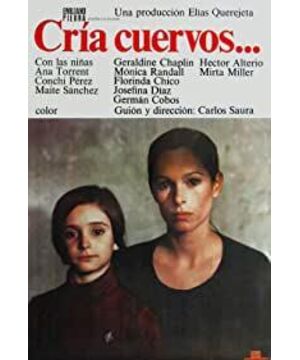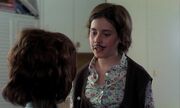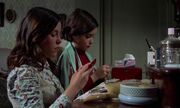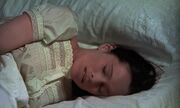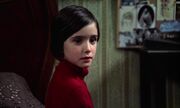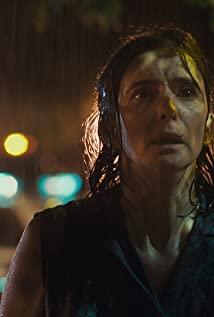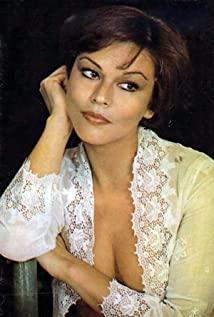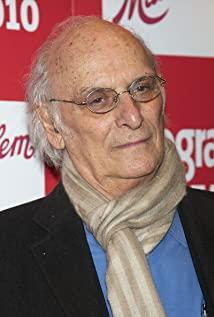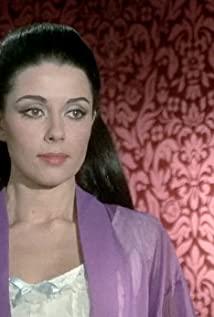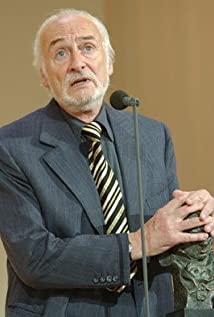Carlos Saura’s fascination with death is reflected in many of his films: the sacrifice of the head of John the Baptist in "Salome", the dance with her husband’s undead in "The Magician of Love", and the "Raising the Crow" The biggest haze in "is also the breath of death.
In the film, the loss of parents is shrouded in the depression of the late Franco era, and this impression appears: The summer vacation seems to be particularly long, and the girls are trapped in childhood and can never wait to grow up. Carlos Saura arranged for the actor who played Anna's mother to play the adult Anna at the same time. Does it imply that she will never get out of her mother's shadow? Anna also said that she couldn't understand people who called childhood the happiest time in her life.
Anna's parents passed away one after another, and she and a pair of sisters were adopted and brought up by her aunt. What impresses the most is her neat short hair and round face, which combines the heroic spirit of a boy and the melancholy of a girl, but Anna seems willing to live in this melancholy, because she can see her mother—the ghost of her mother's constant manifestation continues to appear. In this house. Anna's favorite song is "Por que te vas" (Why did you leave). This was originally a song describing the departure, but it was written in a pleasant, even a little calm rhythm, understatement. This contrast made Anna treat death indifferently. She and the two sisters danced gracefully, obviously unaware of the predicament they were in-they were both happy from the bottom of their hearts. In this short moment, childhood only showed its original appearance.
Childhood should be naive, and Anna is of course naive, otherwise she would not believe that she could really use white powdered "poison" (actually alkaline noodles, mother cheated her to be poison) to try to poison her father and grandmother. For her, death is not a philosophical issue worth thinking about, but an external pressure that must be faced. She not only remembered that death can come automatically, such as the death of her mother, but also that she could take the initiative to act as the executioner-poisoning others with poison. She tried to make her "take poison" when her grandmother looked at the photo. Or "poison" in aunt's milk. Death may also be a game: Anna and her sisters are playing hide-and-seek in the countryside. She orders the two sisters who exposed their whereabouts to "die", and the sisters really fell to the ground and pretended to be dead. Death in the form of a game is the dissolution of her fear. Anna called "Resurrection", and her sisters really got up from the ground. This makes her stronger.
Although Anna has not yet reached the age to think about the meaning of death, she should understand the power it represents, so "Raising the Crow" has been cast with a tragic color. We can interpret the film as the shadow of the dictatorship. As the "big brother" Franco himself died, but violence, crime, and violations of others may continue to exist. Anna said that her father gave her a pistol, and her sister should have bequeathed a rifle to herself like Dao's father. Anna took the pistol and asked her aunt if she could keep it, but her aunt mistakenly thought she was going to shoot and kill. My aunt's worries are not unreasonable, there are indeed bullets in the gun. Or the maid’s aunty asked: "Why do girls play guns?" It is not that women should stay away from violence, but that this kind of naivety to violent symbols will be brought into the collective unconsciousness of society and let the whole society lurking. Bane. During Franco’s rule, the Basques were brutally suppressed. The Basque separatist organization "ETA" established in 1959 caused countless terrorist incidents, not only assassinating politicians but also killing civilians. After Franco’s death, democracy The process of transformation did not reduce the violence, but made it intensified. This film, filmed in 1976, clearly predicted all this precisely.
However, Saura is not an absolute pessimist, he can't bear to let any of the three sisters become a murderer. Saura sees death as an evil, but it can be atoneted through faith. When Anna first decided that the white powder was poison, she tasted it herself and quickly vomited it out, indicating that she had no intention of suicide; while Anna's pet guinea pig died, she buried it in a box with a cross painted on it. Pray for it devoutly. In contrast, the older and younger sisters who saw Anna’s move, the younger sister asked the older sister what is dead, the older sister avoided talking, the two left, they were ignorant and the other meaningless about death. Anna combines an angel and a devil. The faith she serves is not in a moral sense, because it is hard to say that crossing the guinea pig is a great good, and she can turn around and use "poison" to kill people. Nietzsche said that "God is dead" and morality is nothing. Only then can we become Gods by ourselves and explore the meaning of life. In fact, from beginning to end, Anna didn't know that the white powder was just a non-toxic alkaline surface. When Anna showed the "poison" to her grandmother, the lens gave a close-up—only the audience and grandmother knew. In other words, the intention is not to criticize Anna’s behavior with morals, but to make us think about her actions, because we may also do evil, and "dangerous life" is just one of the meaning of our lives, not like Anna’s. The sisters avoided talking.
But what is surprising is that black is not the theme color of the film. Young Anna's fascination with death gave her a colorful romance. In fact, the most eye-catching thing in the film is the red sweater that Anna often wears.
Perhaps what the film conveys is the realization that most of life is painful, and joy only exists in short moments. Thinking of this, everything is calm. When listening to por que te vas, there seems to be light.
View more about Cría Cuervos reviews


